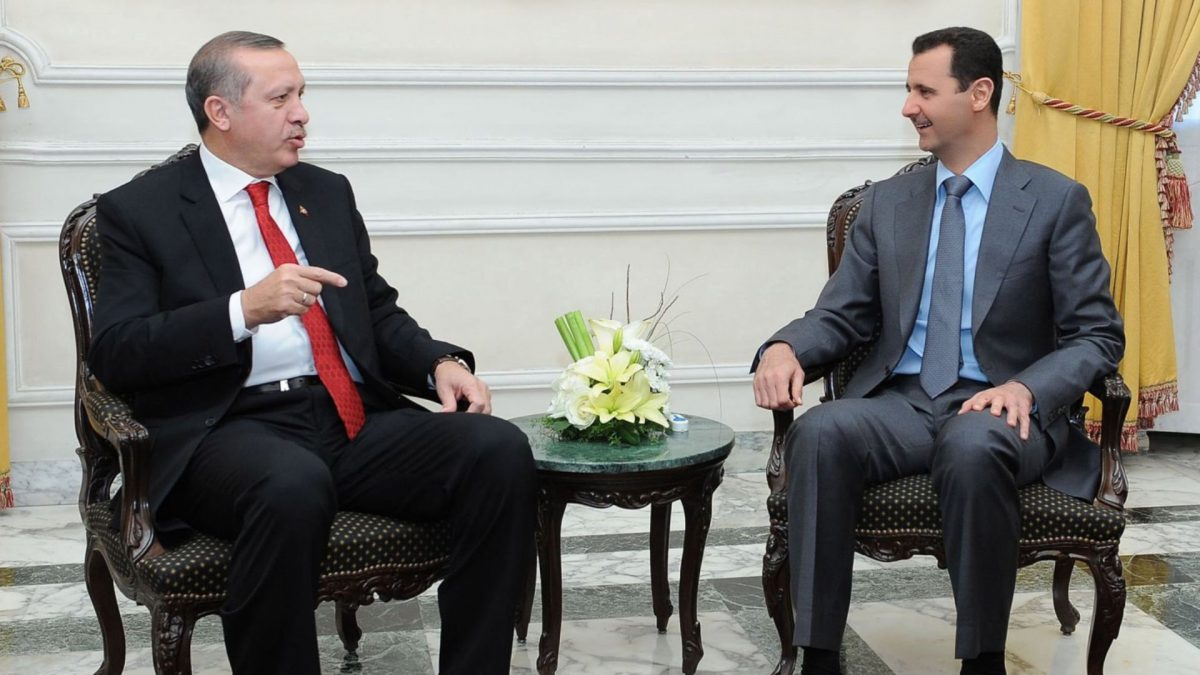Turkish President Recep Tayyip Erdogan has expressed a desire to meet with Syrian President Bashar al-Assad. This development is notable for being somewhat unexpected, considering Erdogan’s decade-long stance of labelling Assad as a “terrorist” and vehemently supporting efforts to oust him from power. This shift in policy raises questions about the factors compelling Erdogan to seek rapprochement with a leader he once vehemently opposed.
What has happened: A long-term impact
The Syrian civil war, now in its second decade, has profoundly impacted Turkey. Initially, Turkey was a major supporter of the Syrian opposition, providing logistical support and facilitating the movement of fighters into Syria through what became known as the “Jihadi Highway”. This involvement aimed to expedite Assad’s downfall, aligning with Turkey’s broader regional ambitions.
However, the unintended consequences of this support soon manifested. Millions of Syrians fled the conflict, seeking refuge in Turkey. Today, Turkey hosts an estimated 3.7 million Syrian refugees, straining the country’s resources and exacerbating societal tensions.
Despite receiving significant financial aid from the European Union and the United States, the presence of such a large refugee population has become a contentious issue within Turkey, fuelling public discontent and political pressure.
Domestic pressure amid a refugee crisis
The refugee crisis has become a focal point in Turkish domestic politics. Anti-Syrian sentiments have been rising, with recent riots in various Turkish cities highlighting the friction between refugees and local populations. The economic pressures brought on by high inflation have only intensified these tensions, with many Turks blaming Syrians for their economic woes.
For Erdogan, this issue has become politically significant. Opposition parties have capitalised on the public’s frustration, calling for mass deportations and criticising the government’s handling of the refugee situation.
Impact Shorts
More ShortsThis mounting pressure has forced Erdogan to reconsider his approach, leading to his outreach to Assad in hopes of finding a solution that could facilitate the return of refugees to Syria.
The Kurdish issue and regional stability
Another critical factor driving Erdogan’s outreach is the situation in northeast Syria, where the Kurdish-led Syrian Democratic Forces (SDF) have established a semi-autonomous region with apparent American support.
Turkey views the presence of an autonomous Kurdish entity on its border as a direct threat to its national security, fearing it could inspire separatist sentiments among its own Kurdish population.
It also seems to emerge from Turkey’s failure to tackle the Kurdish issue militarily. It launched military operations, such as Operation Euphrates Shield and Operation Peace Spring, to disrupt the territorial integrity of Kurdish-controlled areas.
But the Kurdish presence remains a significant concern for Ankara. Erdogan sees engagement with Assad as a potential means to counterbalance Kurdish aspirations for autonomy, hoping that a cooperative Syria might clamp down on Kurdish forces.
Assad’s position in Syria
From Assad’s perspective, engaging with Erdogan offers an opportunity to reclaim Syrian control over areas occupied by rebels and foreign forces. Although Assad insists on Turkish withdrawal from Syrian territory as a precondition for any meeting, he has shown openness to dialogue, recognising the potential benefits of normalising relations with Turkey.
The restoration of trade and economic ties with Turkey could provide a much-needed boost to Syria’s ailing economy. Moreover, Assad hopes to leverage Turkey’s stance against the Kurds to his advantage, potentially negotiating a deal with Syrian Kurds that aligns with Damascus’s interests.
However, Assad is adamant that any such arrangement must involve the dissolution of Kurdish military structures, a stipulation the Kurds are unlikely to accept as long as they enjoy American backing.
What it means for the US’s presence in the region
Erdogan’s outreach to Assad also has strategic implications for the US which has a significant presence in the region. The United States’ current strategy, which involves a small military presence in Syria to support the SDF and counter Iranian influence, is increasingly untenable. With regional actors normalising relations with Damascus, Washington’s goal of regime change in Syria appears unrealistic.
The election of Iranian reformist Masoud Pezeshkian, who has shown willingness to engage with the West, further complicates the situation. As the US goes to the polls which will decide its approach towards Iran, the current Joe Biden administration also has to reconsider its position on Syria. The long-standing policy of regime change and the creation of a quasi-independent Kurdish enclave in Syria may no longer align with the evolving geopolitical landscape and the changing alignment in West Asia.
How it may shape West Asia’s future
For the US, the most pragmatic approach may involve facilitating a diplomatic resolution between the SDF and the Syrian government, ensuring Kurdish rights while reestablishing Syrian sovereignty. This could involve easing sanctions on Syria to stimulate economic recovery and encourage the return of refugees, thereby reducing regional tensions and stabilising the situation.
Furthermore, the US may move towards acknowledging the shifting dynamics among its allies. Many European countries, as well as Turkey, are advocating for the normalisation of relations with Assad. By resisting this trend, the US may alienate its allies and lose influence in the region especially as Europe looks at unease with the possibility of the return of Donald Trump as the American president this November.
Erdogan’s overture to Assad, meanwhile, underscores the complex but evolving nature of West Asian geopolitics. Driven by domestic pressures, security concerns, and regional realignments, Turkey’s shift in policy reflects more the need for pragmatic engagement with Syria than a genuine interest in resolving the Syrian and hence also a Turkish crisis.
As the situation unfolds, it remains to be seen how these diplomatic efforts reshape the region’s political landscape and influence the broader international response to the enduring conflict in Syria.
)